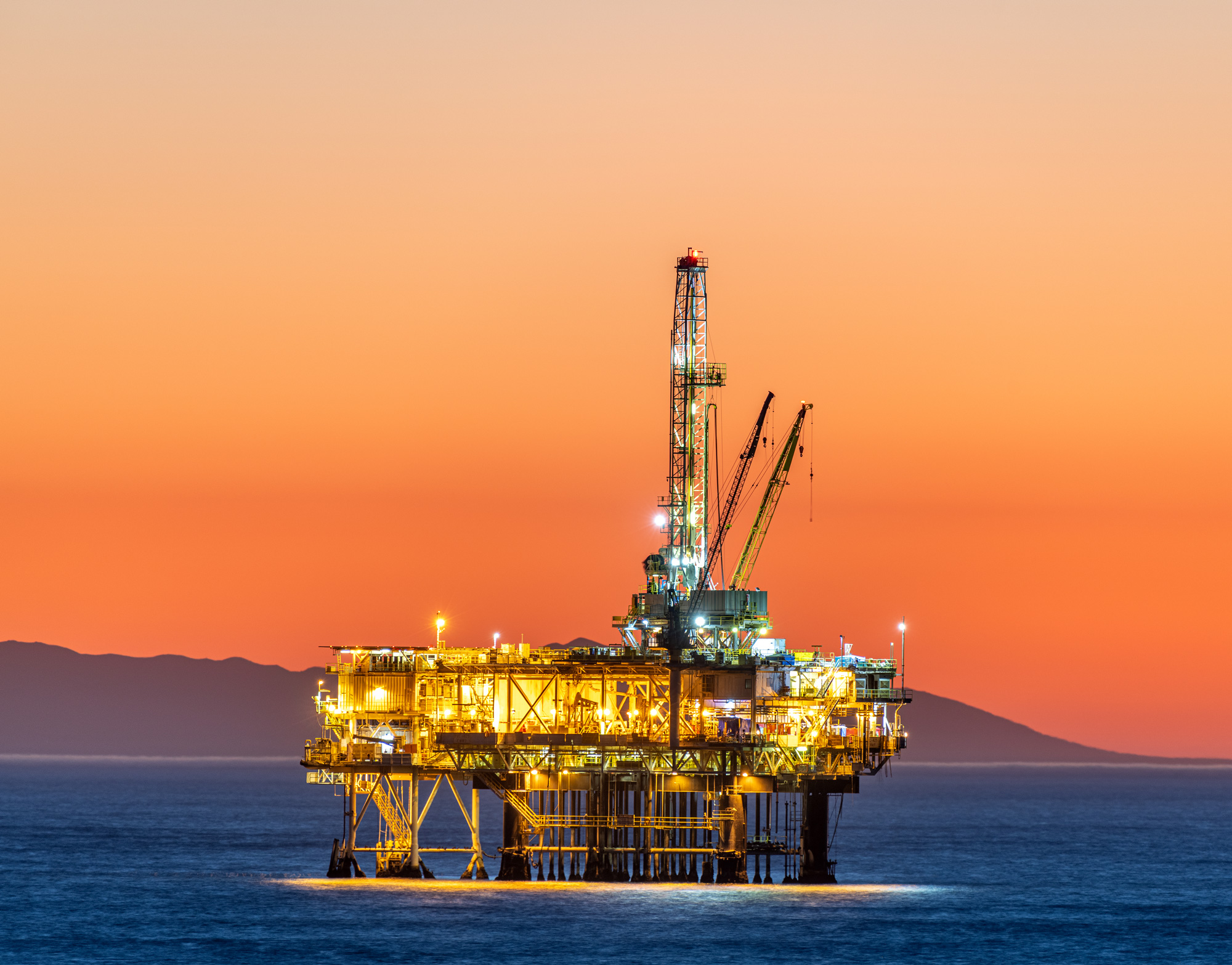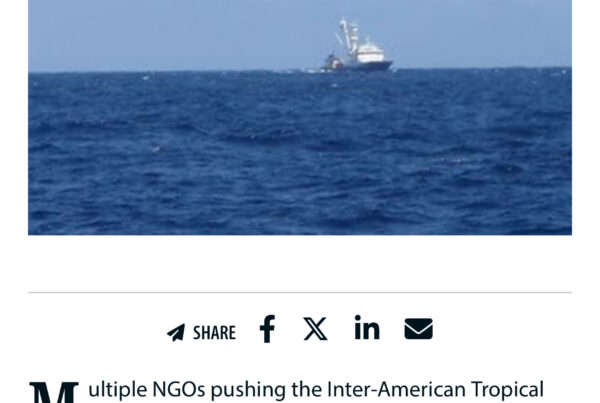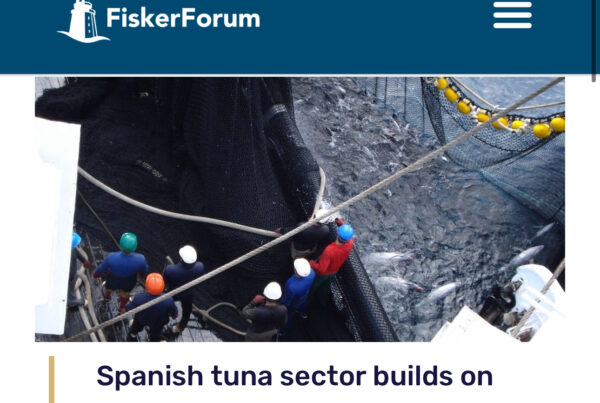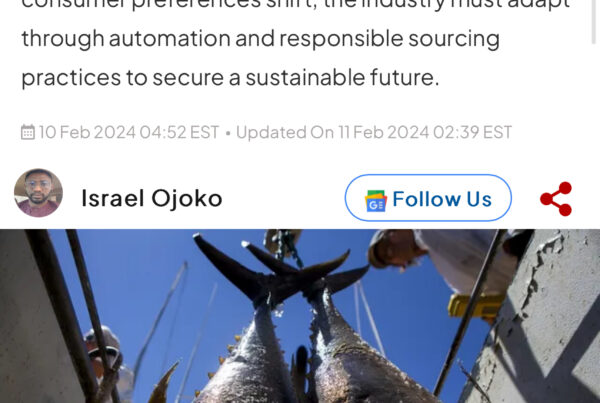Bunker Prices Break Records as Crude Oil Prices Surge
The rise in fuel prices to all-time highs has caused many fishing boats in the provinces of Bình Thuận and Quảng Ngãi and in the Mekong Delta to stop going out to sea since the longer they sail the more losses they incur.
On March 1, the price of diesel increased to an unprecedented VNĐ20,800 (US$0.91) per litre, 10 per cent up from the end of last year and 70 per cent higher than at the end of 2020.
Hoàng Văn Thành, owner of a fishing ship in Bình Thuận’s Phan Thiết City, said at the current prices the cost of a fishing trip would be VNĐ120 million ($5,250), including VNĐ110 million just for fuel. Continue reading here (Source: EIN Presswire).
China’s Fisheries Policy Changing? Diverting Fuel Subsidies from Vessels to Good WTO Fishing Practices
China is growing up to its international commitments: two coastal provinces following instructions from the Ministry of Agriculture and Rural Affairs have started to award “fishery stewardship subsidies” to its vessels depending on how they implement measures such as catch volumes, respecting opening and closure of seasons, during the previous year.
First it was Shandong who announced a similar system of compensations for good behavior late last year, and now Fujian has joined paying out the so called, “fishery stewardship subsidies” to vessels registered within its borders.
Although the policy document instructions from Beijing have not been made public, it is believed they respond to the current discussions in the World Trade Organization to put an end to harmful fishing subsidies globally, of which Chinese fishing vessels have been among top of the list for many years. In effect China has been paying fuel subsidies to fishing vessels, based on size and time spent at sea, since 2006, expanding fishing capacity, overfishing and other sins. Continue reading here(Source: MercoPress).
Tesco Picks Up PNG Tuna; Princes Achieves Sourcing Goal
Tesco has begun purchasing Marine Stewardship Council-certified tuna from Papua New Guinea, and food and beverage group Princes has reported that despite supply chain challenges related to the COVID-19 pandemic, all of its branded tuna came from responsible sources in 2021.
Hertfordshire, England-based Tesco, which operates more than 4,600 grocery stores, made the commitment after “a long assessment,” according to PNG Fishing Association Sustainability Director Marcelo Hidalgo.
“Tesco, after several meetings, decided to buy MSC-certified tuna from PNG because of our Responsible Social Policy (RSP) – for the U.K. market,” Hidalgo told SeafoodSource. “Tesco is the first supermarket in the U.K. to start buying MSC-certified tuna coming from purse-seiners when we know the high commitment that U.K. retailers always have with pole and line[-caught tuna]. This decision will be a game-changer for the U.K. supermarket [sector].” Continue reading here (Source: SeafoodSource).
Costa Rica Transparent With Vessel Fishing Activity
The agreement between Costa Rica and Global Fishing Watch (GFW) which was signed in July 2020, has come into effect. Since January 2022, the data of 95 vessels — commercial longliners and purse seiners — are publicly visible on the company’s map as part of its commitment to transparency in its fishing sector. Costa Rica entered the pact to combat IIU fishing in its nearly 231 ,661 square miles (600,000 square kilometers) waters in the Pacific and the Caribbean. Continue reading here (Source: Atuna).
American Samoa Reports 243 COVID Positive Cases After Weekend Testing
Community transmission of COVID-19 continues on Tutuila island with American Samoa’s cumulative total at 243 positive cases as of 9p.m on Sunday, Mar. 6, while a federal team with support personnel and more supplies arrived last Friday on a military aircraft charter.
The local Health Department on Mar. 6, determined 12 individuals tested positive for COVID based on tests conducted on that date. There were three hospitalizations related to COVID-19 reported on Saturday March 5 — but no additional information was provided on the conditions of these individuals and Sundays report stated that there were no hospitalizations.
However, KHJ radio reported that there are 4 hospitalizations at this time, with three elderly individuals who are unvaccinated among the patients listed by KHJ. These are our first admissions due primarily to COVID infection.,” Acting Chief of Staff for the hospital, Dr Akapusi Ledua told KHJ. According to KHJ they are all reported in stable condition. Continue reading here (Source: Samoa News).
Sanctions on Russia Likely to Boost Seafood Prices in Japan
Economic sanctions imposed on Russia for its invasion of Ukraine are expected to boost seafood prices in Japan, for which Russia is the third-largest seafood exporter.
Sockeye salmon from Russia accounts for 80 pct of Japan’s total imports of the fish, while sea urchin from the northernmost Japan prefecture of Hokkaido is in short supply due to red tide last year.
Prices of seafood products are seen rising markedly if shipments from Russia stop and higher crude oil prices resulting from the sanctions are reflected. Continue reading here (Source: Nippon.com).
Princes Achieves 100% ‘Sustainably Sourced’ Tuna for Entire Branded Range in 2021
Canned food giant Princes has announced it responsibly sourced 100% of its branded tuna in 2021.
The milestone follows a 2018 commitment by Princes to only purchase responsibly-sourced tuna for all its brands from fisheries that were either already Marine Stewardship Council-certified, engaged in a fishery improvement project (FIP) that was working towards MSC certification, or from verified and well-managed fisheries that did not use a fish aggregation device (FAD) or sourced via pole and line.
Now, Princes has reported 100% of its branded tuna in the UK, Netherlands and Poland was sourced via an FIP or MSC-certified source in 2021, despite COVID-related supply chain challenges. Continue reading here (Source: The Grocer).



